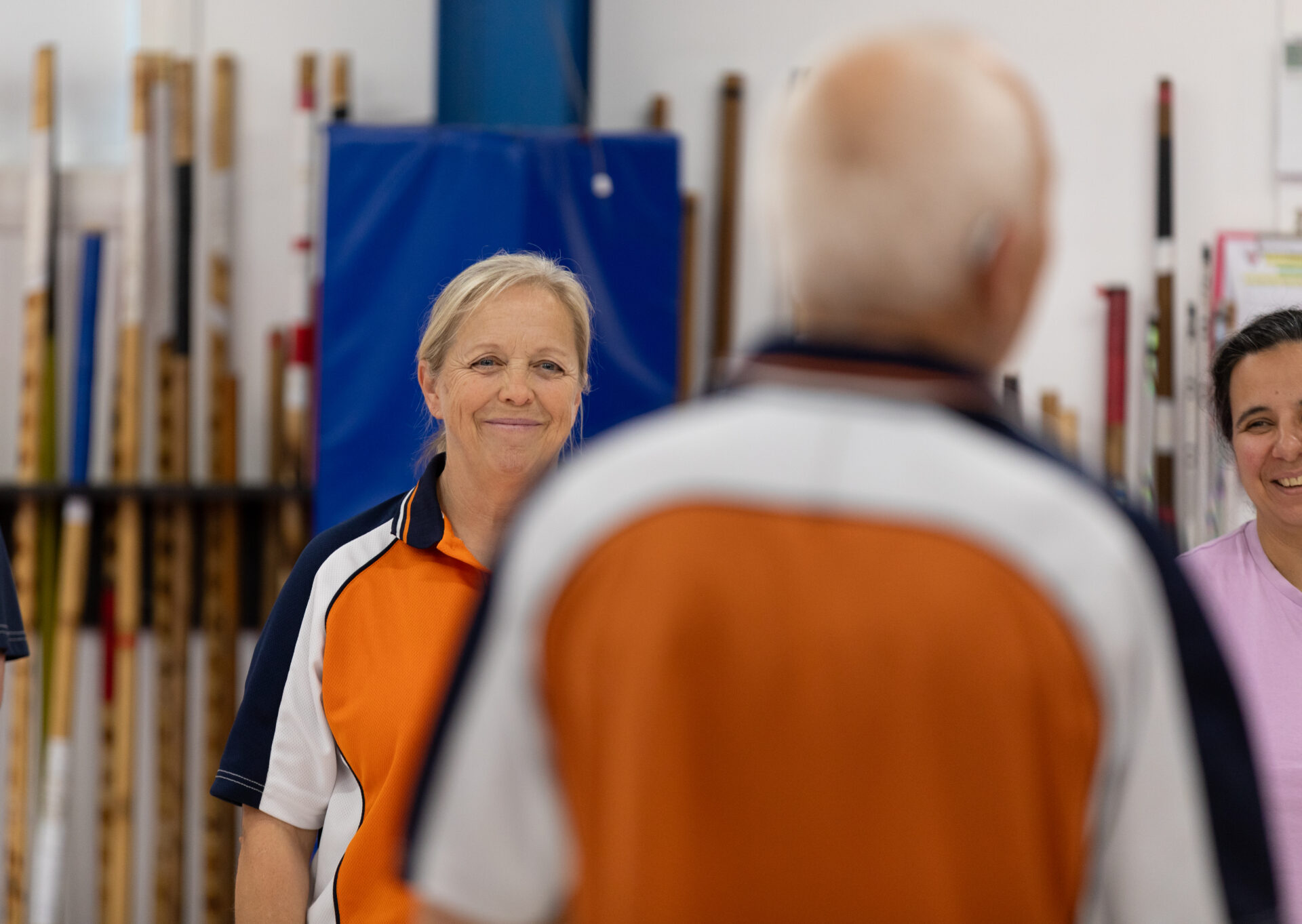Liz Mahler is Australia’s only qualified Master Instructor of Rock and Water Focus on Girls and an advanced trainer of Rock and Water for Boys. With over 40 years’ experience as a martial artist and educator, Liz has empowered thousands of girls, teachers, youth workers, and professionals across the country through her powerful and transformative workshops.
In partnership with Rock and Water Australia and The Gadaku Institute, Liz will be leading a special Focus on Girls two-day training workshop, designed to support teenage girls and women in developing confidence, communication skills, resilience, and a strong sense of self. Backed by decades of experience and a deep understanding of adolescent development, Liz’s sessions offer practical tools and meaningful change for those working with young women.
FOCUS ON GIRLS WORKSHOPS are being held in Lawnton, QLD (25-27 Aug 25) and Rossmoyne, WA (19-20 Nov 25). To learn more and register, please click on the location.
GENDER-BASED VIOLENCE IN AUSTRALIA: 2025 SNAPSHOT
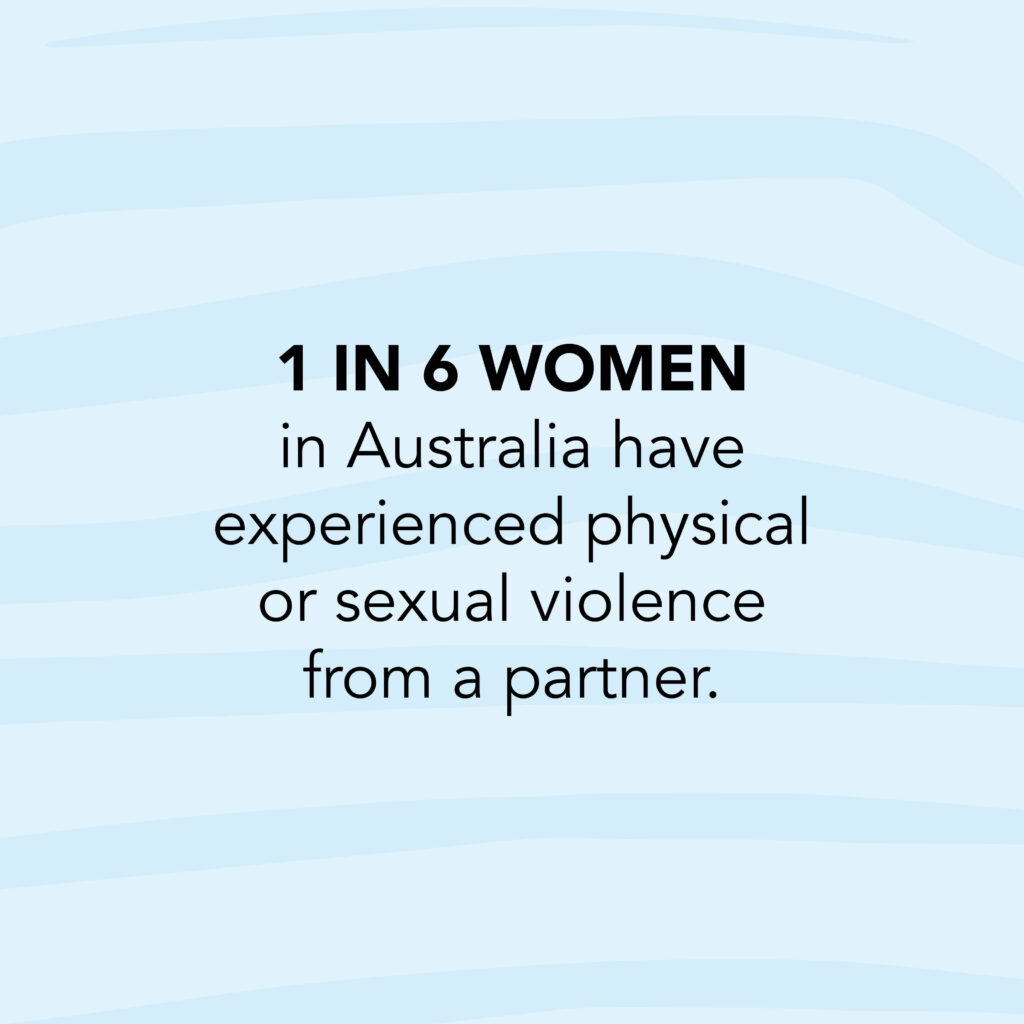
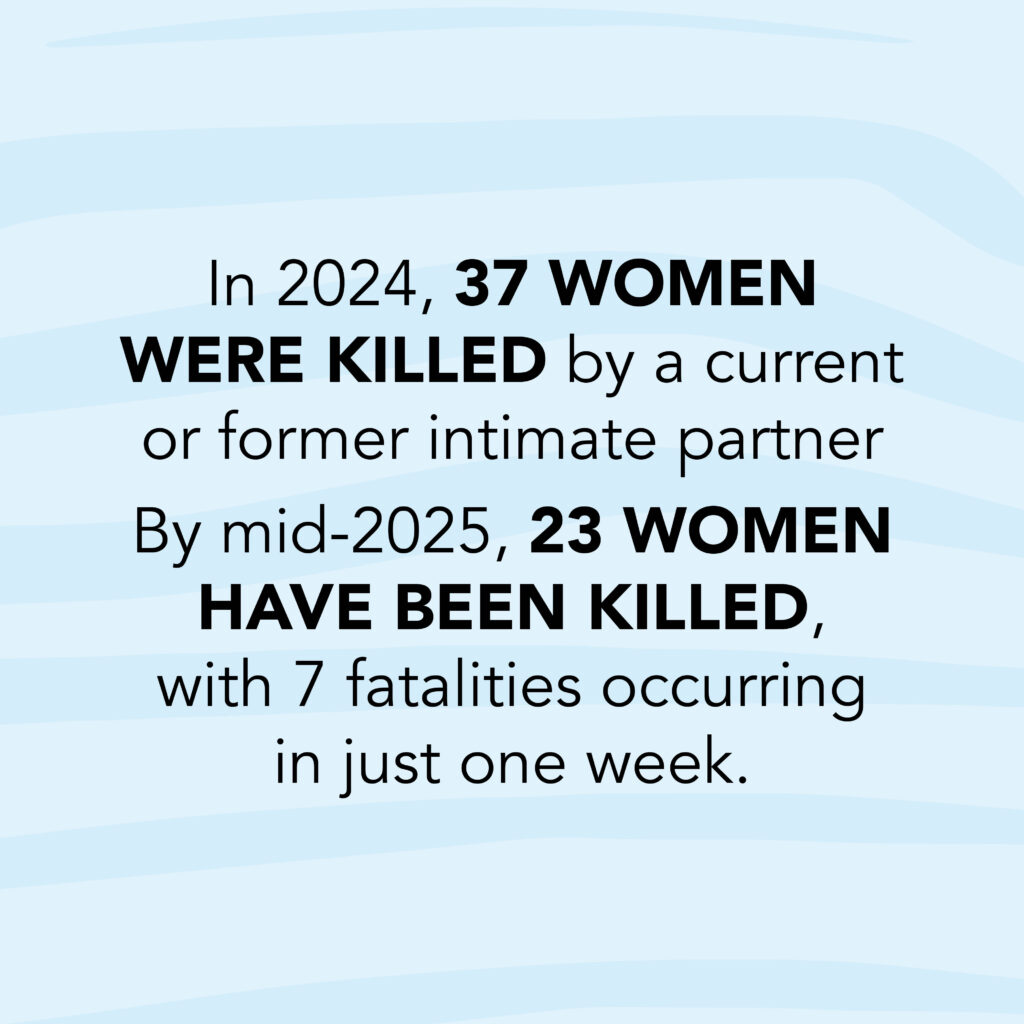
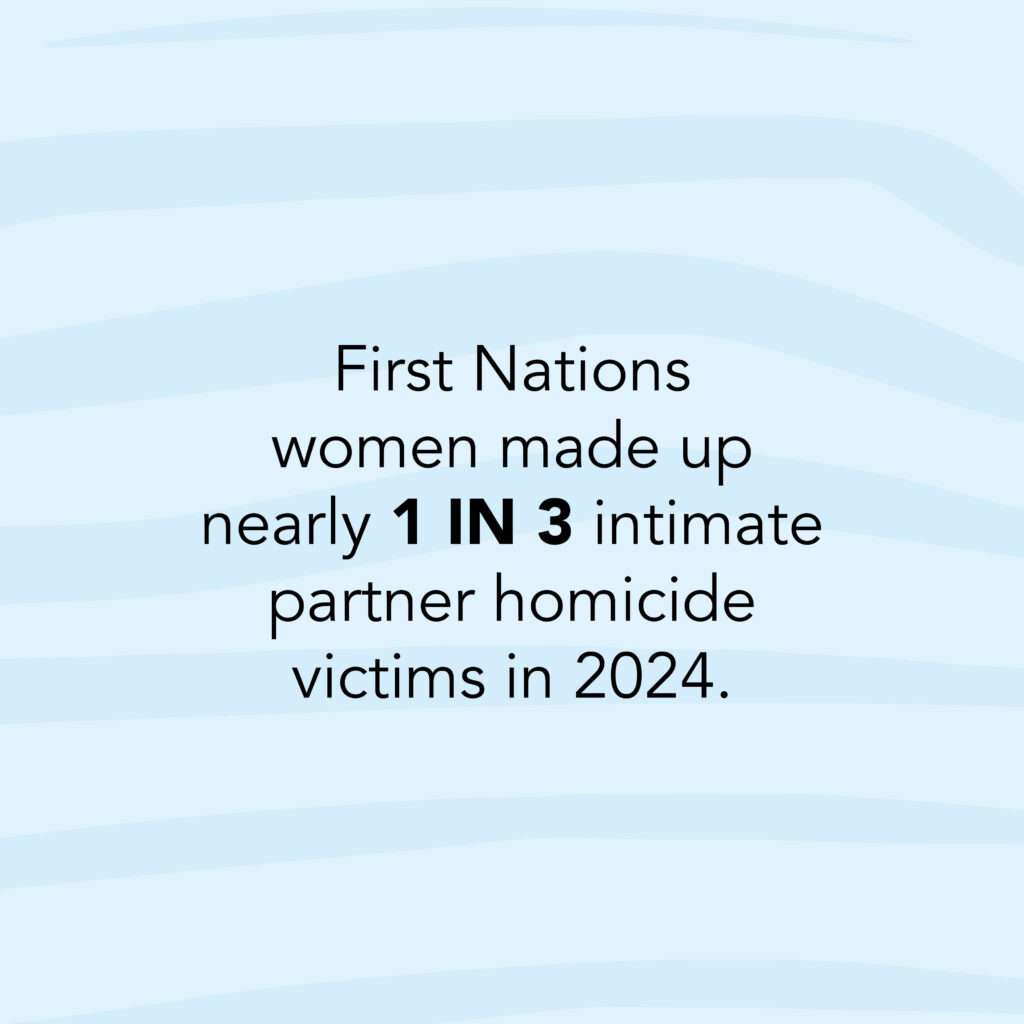
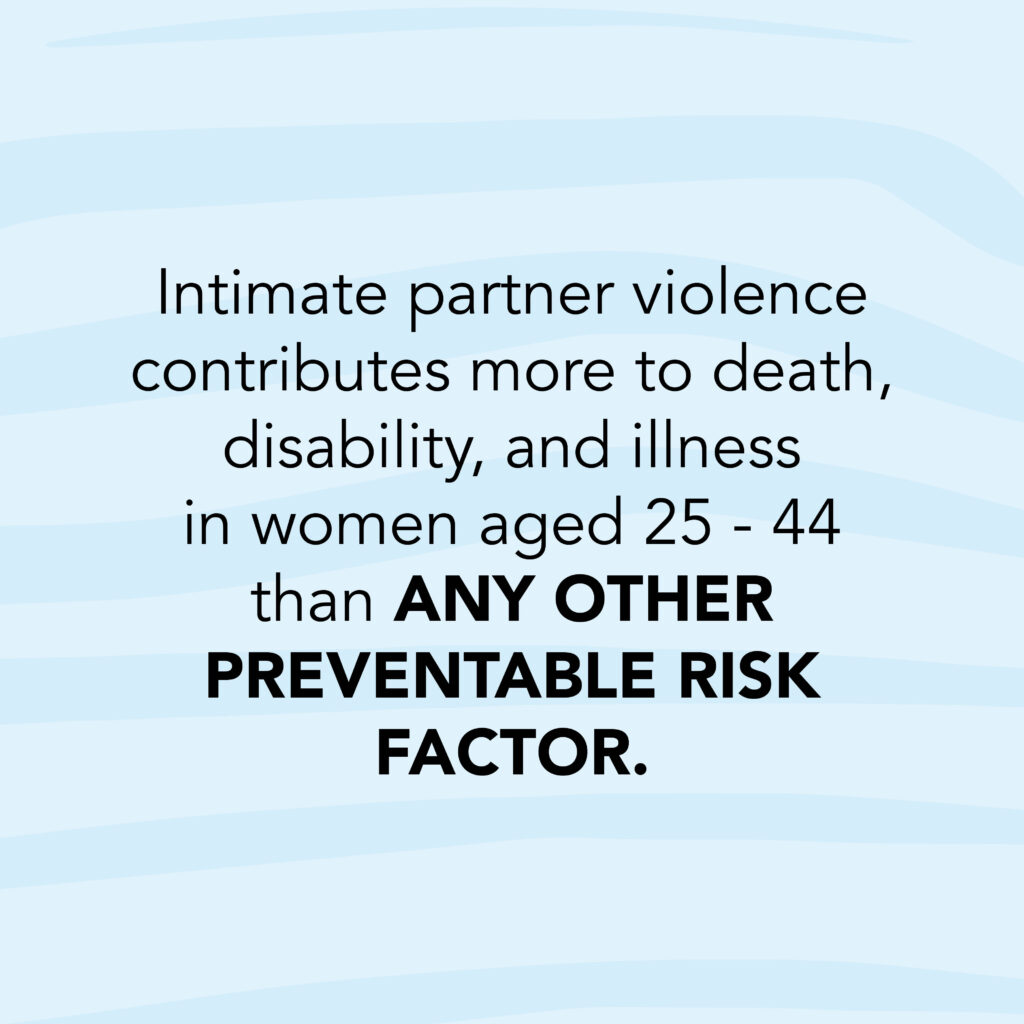
Gender-based violence remains a critical issue in Australia, with recent data highlighting its pervasive impact:
Prevalence of Violence
- Approximately 1 in 6 women and 1 in 16 men have experienced physical or sexual violence from a current or former partner since the age of 15.
- Around 1 in 5 women (20%) have experienced stalking, compared to 1 in 15 men (6.8%)
- Nearly 2.3 million women have reported experiencing emotional abuse since the age of 15.
Workplace Harassment
- A recent report revealed that 1 in 2 women and 1 in 4 men working in retail have experienced sexual harassment, with young women under 25 being the most affected.
Homicide and Fatalities
- In 2024, 37 women were killed by a current or former intimate partner.
- As of mid-2025, 23 women have been killed, with 7 fatalities occurring in just one week.
Impact on Specific Communities
- Nearly 1 in 3 female victims of intimate partner homicide in 2024 identified as First Nations women, indicating a disproportionate impact on Indigenous communities.
Economic and Health Consequences
- Women who have experienced sexual violence are 30–45% more likely to face high financial stress compared to those who haven’t.
- Intimate partner violence contributes more to death, disability, and illness in women aged 25 to 44 than any other preventable risk factor.
- Domestic and family violence is a leading cause of homelessness for women and children.
- The economic cost of violence against women and their children in Australia is estimated at $21.7 billion annually.
Underreporting and Legal Challenges
- Approximately 70% of women who experience abuse by a current partner do not report it to the police.
- Among those who obtain court intervention orders, nearly half report that the violence continues regardless.
Sources: Australian Bureau of Statistics, Australian Institute of Health and Welfare, Gender Equality Australia, Our Watch, MJA, Unified Lawyers, BCEC, and media reporting from 2024–2025.
Empowering Women and Girls Through Martial Arts and Rock and Water Training
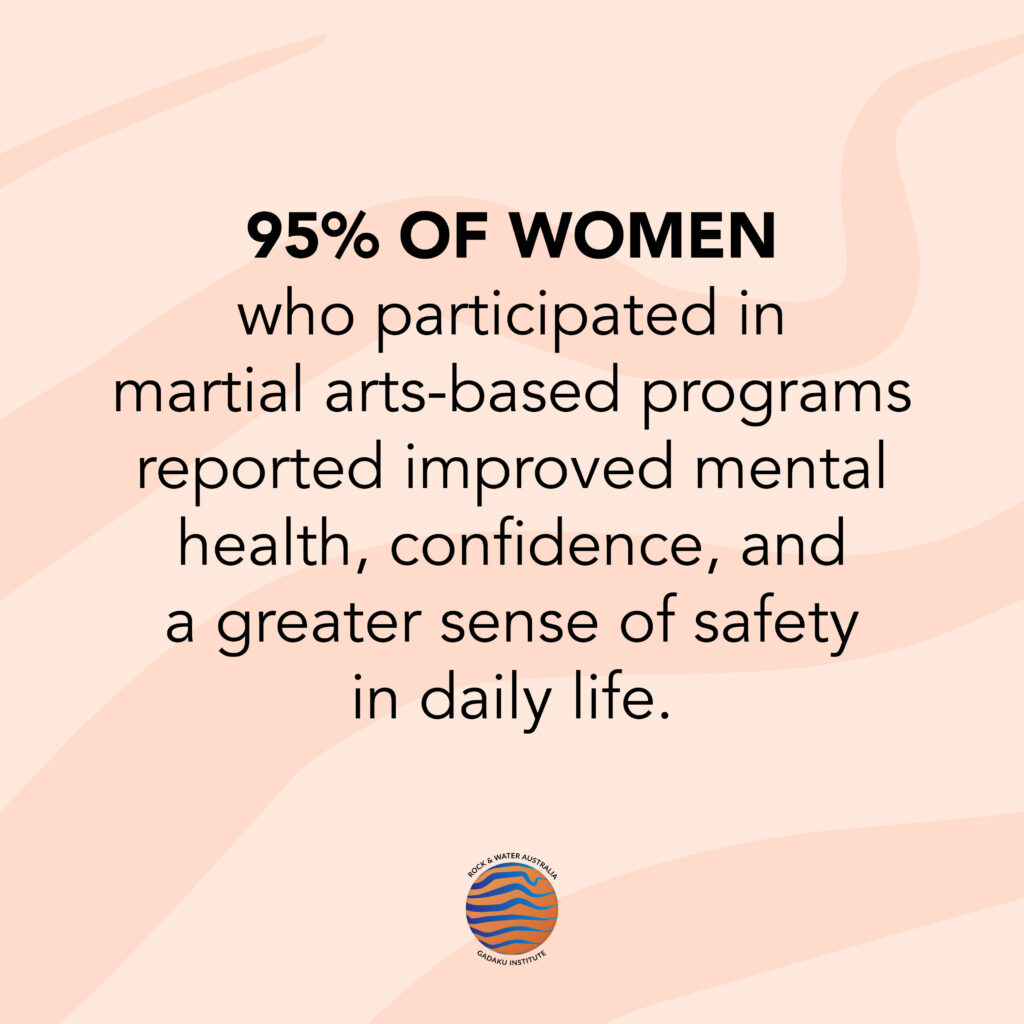
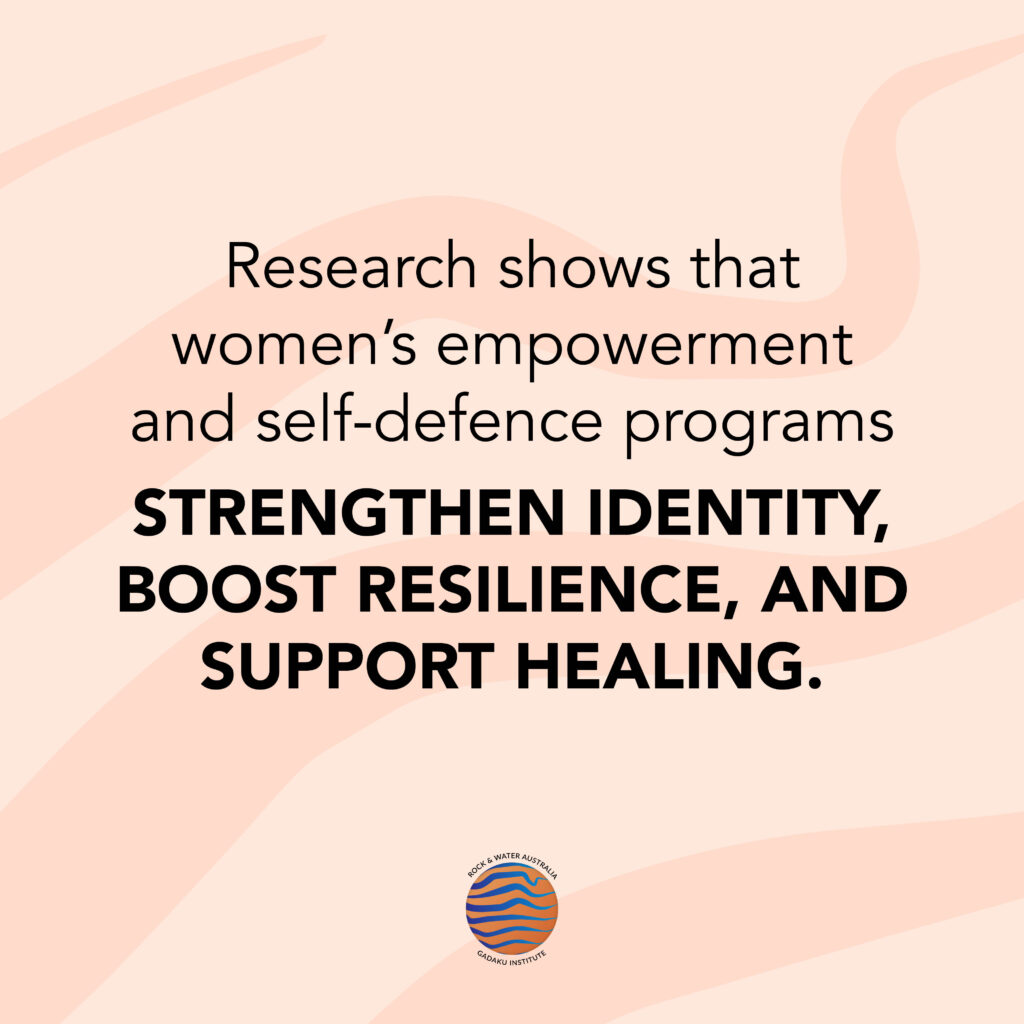
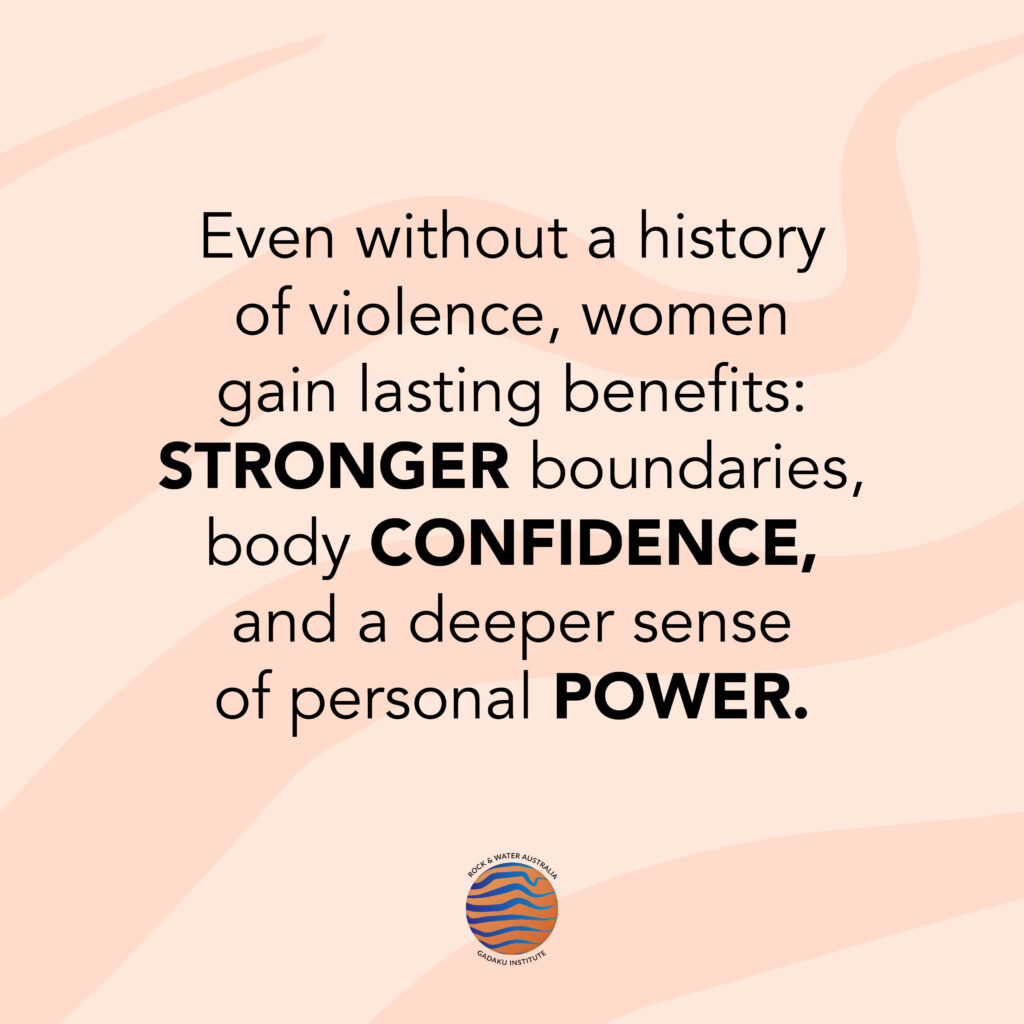
Overview
Martial arts and Rock and Water programs have increasingly been recognised for their capacity to empower women and girls, build self-confidence, and reduce vulnerability to violence and sexual assault. This document summarises key research findings that support the use of these interventions in individual development and violence prevention strategies.
Martial Arts Training: Impact and Outcomes
Psychological and Emotional Benefits
Martial arts and empowerment-based self-defence programs have consistently shown positive effects on the psychological wellbeing of women and girls:
A survey conducted by the Pink Belt Project in Australia, involving over 400 women, found that:
- 95% reported moderate to high improvements in mental health, including reductions in stress, anxiety, and depression.
- 95% experienced increased confidence and empowerment.
- 93% felt safer and more secure in everyday life.
- A 2024 qualitative study by Eggleton and Skea reinforced these findings, showing:
- Improved self-confidence, self-acceptance, and body image.
- A strengthened sense of identity and resilience, particularly among women who had experienced past trauma.
In her 2004 study “I Can Take Care of Myself,” Professor Jocelyn Hollander (University of Oregon) found that participants in a 10-week feminist self-defense course experienced:
- Increased self-confidence and assertiveness
- Reduced fear of assault
- More positive body image
- Improved social comfort with strangers, acquaintances, and intimates
- Shifts in beliefs about gender roles and personal agency. These benefits were evident even among women with no prior experience of violence, demonstrating the proactive power of such training in fostering self-worth and agency.
Evidence of Violence Prevention
In a 2020 study co-authored with Jeanine Cunningham, Hollander evaluated a 9-hour self-defence course delivered to a broader community sample aged 18–77. Participants reported:
- Significantly lower rates of sexual assault at a one-year follow-up
- Higher levels of self-defence self-efficacy
- More accurate knowledge about sexual violence and resistance techniques
- Reduced tendencies toward self-silencing
This study offered the first rigorous evidence that self-defence training is effective in preventing sexual violence across a non-college, general population.
Hollander’s 2014 article “Does Self-Defense Training Prevent Sexual Violence Against Women?” analysed data from a mixed-methods evaluation of a 10-week university-based feminist self-defence program. One year later, participants were:
- Less likely to have experienced sexual assault
- More confident in their ability to assertively and effectively resist threats Compared to non-participants, these women demonstrated sustained behavioural change and self-protective awareness.
Empowerment and Violence Prevention
- Empowerment-based martial arts training enhances risk recognition, assertive boundary setting, and readiness to act in threatening situations.
- A cluster-randomised controlled trial in Malawi showed that girls who completed self-defence training were significantly less likely to experience sexual assault.
- Traditional martial arts in cultural contexts (e.g. Kalaripayattu in India, programs for Maasai girls in Kenya) are being used successfully to prevent early marriage, sexual violence, and gender-based oppression.
Cultural and Community Impact
- Programs such as those led by Meenakshi Raghavan in India and at the Enkakenya Centre for Excellence in Kenya demonstrate how martial arts foster personal agency and social change.
- Global programs like Guardian Girls International promote martial arts as a vehicle for resilience and safety across multiple countries.
Rock and Water Program: Evidence and Benefits
Program Foundation
- Developed by Freerk Ykema in the Netherlands, Rock and Water is a psycho-physical training method integrating martial arts, mindfulness, and social-emotional learning.
- The Australian “Focus on Girls” adaptation adds a fourth foundation: Stepping into Action, which supports practical assertiveness and self-defence skills.
Key Outcomes for Women and Girls
- Improved body awareness, emotional regulation, decision-making under pressure and being able to take action to direct their own lives.
- Increased assertiveness and ability to set physical and emotional boundaries.
- Strong feedback from participants indicating improved self-worth, courage, social confidence and personal safety
Australian Context
- Delivered in schools, community groups, and women’s shelters, Rock and Water programs help create safe and respectful environments for women and girls.
- Evaluations in South Australia show reduced bullying, enhanced conflict resolution skills, and greater social cohesion — indicators of a safer social environment for all participants.
Expertise and Impact
Liz Mahler is the only Master Instructor of Rock and Water Focus on Girls in Australia. Over the past 20 years, she has taught the program to thousands of girls, school teachers, youth workers, and allied professionals across the country.
With 40 years of experience as a 7th Dan karate expert, brown belt jiu jitsu practitioner, professional martial arts teacher, and Rock and Water trainer, Liz brings a wealth of knowledge and insight to her workshops.
Her delivery of Rock and Water Focus on Girls is supported by extensive anecdotal evidence of real-time transformations, as women and girls reclaim confidence, personal power, and resilience inside her sessions.
Conclusion
Both martial arts and Rock and Water training programs offer powerful, evidence-informed tools for empowering women and girls. These approaches improve confidence, support mental health, and equip participants with the emotional and physical strategies needed to reduce their risk of violence. Expanding access to and evaluation of these programs should be a priority for schools, communities, and policy-makers committed to gender-based violence prevention.
FOCUS ON GIRLS WORKSHOPS are being held in Lawnton, QLD (25-27 Aug 25) and Rossmoyne, WA (19-20 Nov 25).
Please click on the location to register.

